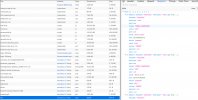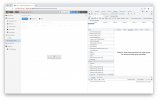Hi,
I can't add new ZFS pools from the GUI, beause it's not recognising the disks respectively showing a communication faiure (0).
During installation all drives showed up in the installation manager and i was able to install PBS on a ZFS RAID1 mirror.
I'm using an LSI SAS Controller in IT Mode with 15 SAS hard drives:
I can't add new ZFS pools from the GUI, beause it's not recognising the disks respectively showing a communication faiure (0).
During installation all drives showed up in the installation manager and i was able to install PBS on a ZFS RAID1 mirror.
I'm using an LSI SAS Controller in IT Mode with 15 SAS hard drives:
Bash:
root@pluto:~# lspci | grep LSI
01:00.0 Serial Attached SCSI controller: Broadcom / LSI SAS2308 PCI-Express Fusion-MPT SAS-2 (rev 05)
root@pluto:~# lsblk -o NAME,SIZE,FSTYPE,TYPE
NAME SIZE FSTYPE TYPE
sda 1.1T disk
sdb 1.8T disk
sdc 1.8T disk
sdd 1.8T disk
sde 1.8T disk
sdf 1.1T disk
├─sdf1 1007K part
├─sdf2 512M vfat part
└─sdf3 1.1T zfs_member part
sdg 1.1T disk
sdh 1.1T disk
├─sdh1 1007K part
├─sdh2 512M vfat part
└─sdh3 1.1T zfs_member part
sdi 1.1T disk
sdj 1.1T disk
sdk 1.8T disk
sdl 1.8T disk
sdm 1.8T disk
sdn 1.8T disk
sdo 1.8T disk


